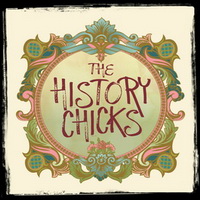by The History Chicks | Apr 10, 2015 | Biography Episode, Episode, Podcasts, Shownotes
Women who need to be remembered often have Lemon to Lemonade lives and Lydia Pinkham is no exception. The going got tough and she turned some herbs (and a wee bit of alcohol) into not only an empire but a leaping advance in women’s health and education.
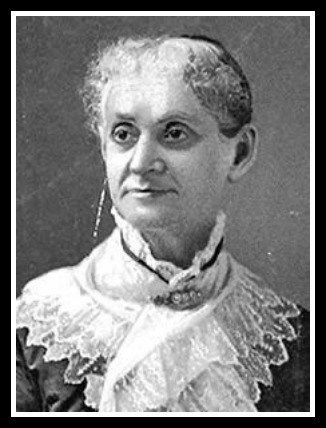
Lydia Estes was born in Lynn, Massachusetts in 1819 into a family led by gentleman farmer, William, his wife, Rebecca and many brothers and sisters. Papa was a wise real estate speculator and they were fairly well-off. But this wasn’t some quiet, subdued Quaker family, oh no! They split with the local Quaker Meeting over the subject of slavery, the Estes family siding with good friend, former slave and abolitionist Fredrick Douglass. They opened their home for many abolitionist gatherings where the children and women were not only seen but heard.
Lydia grew to be a politically active and educated teacher who attracted the eye of widow Isaac Pinkham. On paper Isaac looked an awful lot like her father as far as business sense goes, but it was all paper. 30 years, four children, several upward then downward home moves when the Panic of 1873 hit family finances hard. Isaac was emotionally down for the count and the family was fiscally ruined. (more…)
by The History Chicks | Feb 20, 2015 | Episode, Podcasts
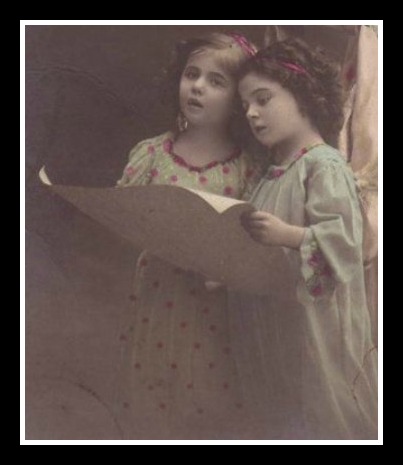 Hello everyone!
Hello everyone!
I’m sure you’ve been wondering where we’ve been…
The library, yes, and assorted bookstores, but not, unfortunately, at the big table that seats 14 at The House of Wood, recording anything.
For you see, Susan has lost her voice. She has a paralyzed vocal cord, in fact, so she DOES have a voice, but the nature of it would scare small children. (Sorry, Susan, you know it’s true. )
This hasn’t been a short term thing, she’s been suffering from this since before Christmas, and it looks to be late March before we can hope to hear the dulcet tones of her voice again.
She has become adept at both sign language and interpretive dance, neither of which translate well to an audio podcast!
SO we have a couple of friends who have volunteered to step in, and there might be a month or so of format changes, since I can hardly expect my new crew to nerd out as hard as Susan and I do, so watch this space, and I’ll have some moviecasts to you soon.
Thanks for the outpouring of support on the Facebook page, and on Twitter – for those of you who don’t know, Susan is the voice of our Twitter feed, so if you’d like to pass on some Get Wells, head over to At the historychix, with an x, and begin the banter. Her typing fingers are as fast as ever.
Thanks for your patience, and all of the messages that have headed our way, and we’ll be back with you, just as soon as we can.
by The History Chicks | Nov 20, 2014 | Biography Episode, Episode, Podcasts
Joan of Arc, Jeannette, Jean, The Maid, La Pucelle, Hero, Heretic, Visionary, Lunatic…that’s a lot of names and titles for a teenage girl who is remembered for events from only a short period of her life. For most of it she was an ordinary girl in an ordinary small town, until she allowed extraordinary visions and voices to lead her into history.
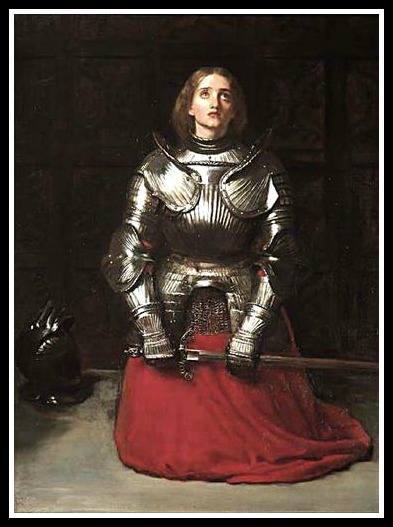
Joan of Arc, Sir John Everett Millais
During the podcast we needed to place Joan into history in a bit more detail than normal. That means a little primer on the Hundred Years’ War- a series of battles and skirmishes between England and France over land for about 116 years. Are there podcasts that spend a great deal of time on this important game of Mine! No, Mine!- yes. Is this one of them? No, we just called a war a “game” for goodness sakes, but you will get a very succinct overview that will explain where and why Joan of Arc’s life played out like it did.

Henry V…well, Tom Hiddleston as Henry V- close enough to the real thing, right?
(more…)
by The History Chicks | Oct 20, 2014 | Biography Episode, Episode, Podcasts
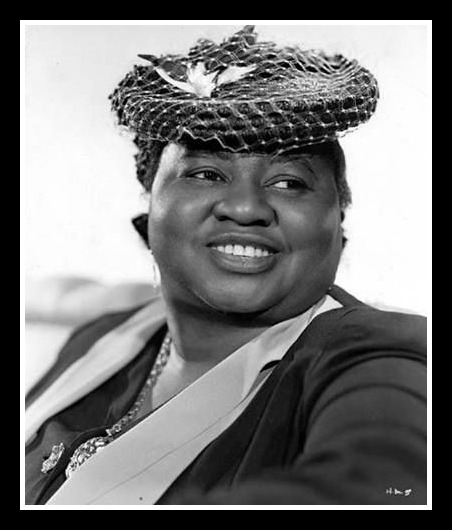
The fabulous, multi-talented Hattie McDaniel.
You know that old story of the “overnight success?” A band you’ve never heard of bursts onto the scene and takes the world by storm. Often you find that they have twenty years of hard work and paying their dues before finally achieving their goal. The same is true of Hattie McDaniel.
Born to former slaves, and growing up in the abject poverty that followed America’s black population in the Jim Crow years, Hattie McDaniel was determined that a life of servitude and struggle was not to be her fate.
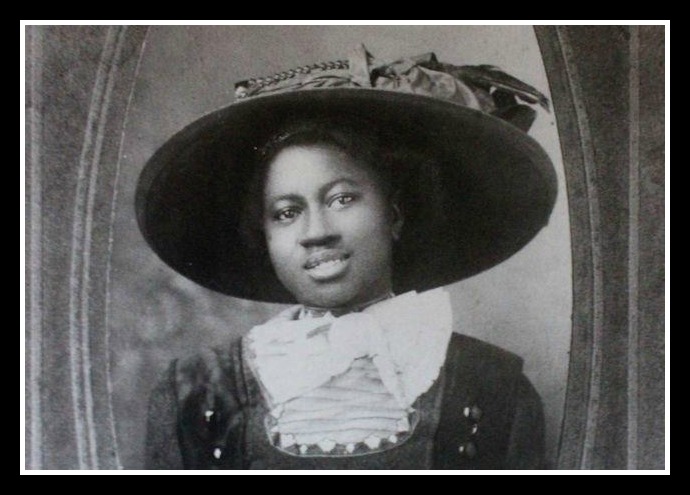
A young Hattie during the Denver days.
(more…)
by The History Chicks | Sep 29, 2014 | Biography Episode, Episode, Podcasts
Once a season we obsess over a subject for our Fictional Episode and this time we let ourselves be carried away with Gone With The Wind. The epic book and movie is only part of the story of a free-spirited, rebellious, creative and unconventional Southern woman and the novel that she wrote of Southern life during the American Civil War and Reconstruction periods.
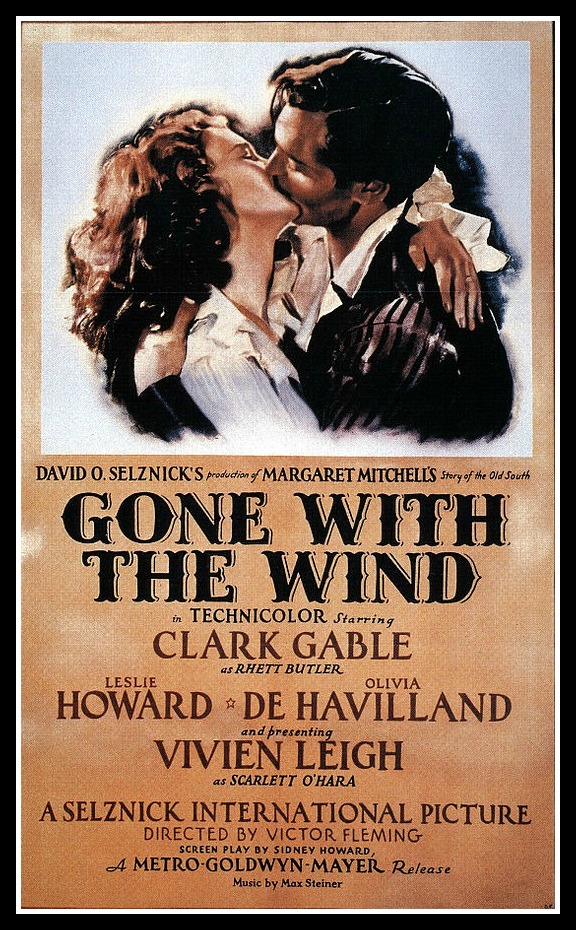
A talk about Gone With The Wind would be hollow without spending a great deal of time looking at the life of the creator of this classic, Margaret Mitchell. You can listen to the podcast episode for all the juicy bits- but here is the nickel version:
Margaret Munnerlyn Mitchell was born November 9, 1900 in Atlanta, Georgia. Except for a brief stint at Smith College in Massachusetts, Atlanta was her lifelong home.
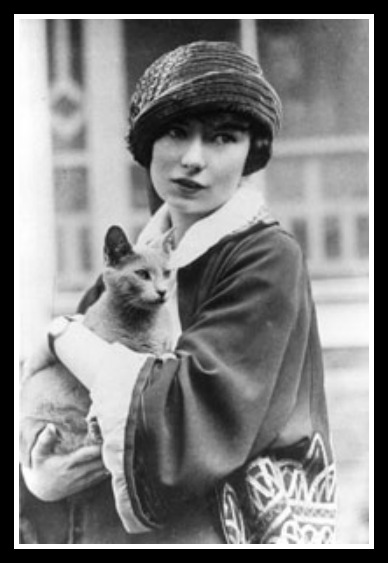
Margaret Mitchell with a fabulous hat…and a cat. (courtesy Media Services News)
The only daughter of Eugene, a lawyer, and May Belle, a suffragist, Margaret’s childhood was filled with days running with the boys, riding horses, reading and writing stories. Much of her time was spent at the knees of her extended family who talked (and talked) tales of life during the War Between the States. She was, as the proper ladies say, a “very spirited child” who grew to become a very spirited woman. Her mother died during the Spanish Flu epidemic and her first fiance was killed in World War I shortly before Margaret was presented to society.
In true heroine and debutante fashion she partied through her pain and plowed through her social season in a big and bold manner. She wore a revealing dress for her formal portraits and performed a blackball-from-the-Junior League-worthy scandalous dance at a talent show; she was the darling of the society page and the sweetheart of many a beau.
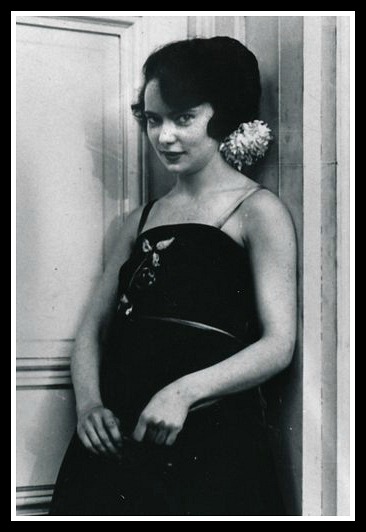
Daring dress? Ah, how times have changed.
Here is a version of the Apache Dance (with Ray Boldger who was starring across town as the Scarecrow in The Wizard of Oz during the filming of GWTW -love it when our subject’s stories converge). Warning before you hit play: It is quite a violent dance.
http://youtu.be/lB-2ub1YvB8
But every Party Girl needs to hang up her dance card at some point, and Peggy chose from her field of suitors Red Upshaw…for reasons that we just can’t quite wrap our heads around. He was dashing but had no job, no prospects and was physically abusive to her. The silver lining of this marriage is that Peggy went to work as a journalist so that the couple could have some income. Journalism she loved, Red she did not and the marriage ended in divorce within a couple of years. She turned right around and married the Best Man from her first wedding, John Marsh (and they did live happily ever after).

“The dump” where Margaret and John lived and she wrote Gone with the Wind.
While recuperating from an injury, Peggy quickly wrote a rough draft of a novel: the story of Pansy O’Hara, a strong and determined survivor of the Civil War. She puttered around with the manuscript for many years, keeping it in envelopes stuffed around her apartment and talking very little about it to her friends who would tease her about writing the Great American Novel.
Our friends know us so well, don’t they?
One day an editor from Macmillan Publishing came to Atlanta on a scouting mission. Fueled by derogatory comments flipped by a snotty writer, Peggy gave the editor her sloppy manuscript. It was a hot mess, but it was a brilliant hot mess! The romance between a morally questionable but properly raised heroine (whose name was changed to Scarlett) and a dashing Rhett Butler that skimmed over the true grit as well as the reasons for the the Civil War was an instant hit!
Very soon Hollywood came calling. Within three years of the novel’s publication Gone with the Wind was the winner of a Pulitzer Prize and a movie that is still capturing our attention 75 years later. While she couldn’t avoid the fame that the novel generated, Margaret Mitchell did everything in her power to distance herself from the movie making. It was probably best, the production – led by David O. Selznick- was as wild as Scarlett and Rhett’s buggy ride through a burning Atlanta. (Oh, the tales we tell! You really should be listening to the podcast.)
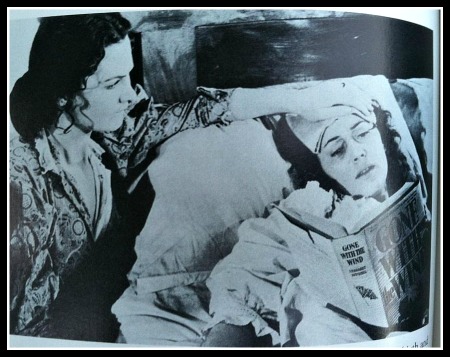
Vivien Leigh and Olivia DeHavilland pranking on the set. Yes, reading that novel is hard work and laborious just just to lift it!
At the movie’s premier (in Atlanta, natch) Margaret let the spotlight shine on her momentarily, and very soon the United States entered World War II. Margaret had the time and means to volunteer and lend her name to philanthropic endeavors including the funding of several black students of Morehouse College through medical school.
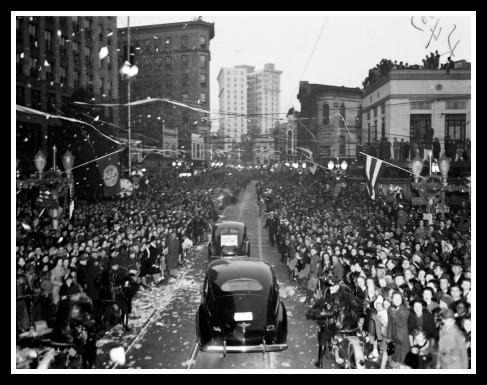
The Atlanta premier drew QUITE a crowd! (Courtesy Margaret Mitchell House)
On August 11, 1949 as she and John were going to a movie on her beloved Peachtree Street, Margaret was struck by a drunk driver. She never regained consciousness and died five days later at the age of 48.
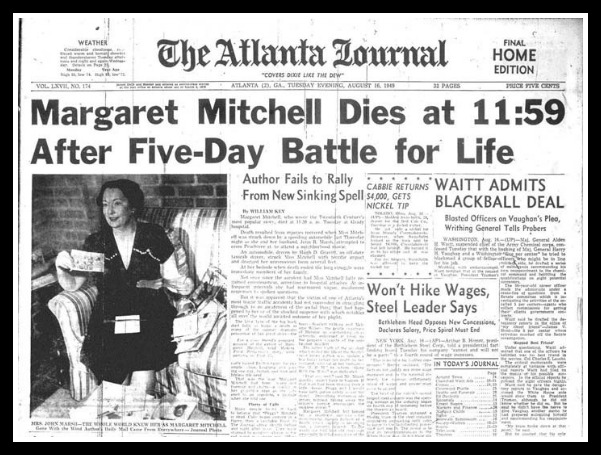
Courtesy Atlanta History Center Tumblr
She never wrote a second novel, but that first one was all she needed. Many have attempted to imitate, but without Margaret Mitchell the world never really will know if Scarlett managed to recapture the heart of Rhett and live happily ever after in Tara.
TIME TRAVEL WITH THE HISTORY CHICKS
Fiddle dee dee, you want to learn more about the book, movie and life of Margaret Mitchell? Why, we have a few places for you to start:
Go tour “The Dump” that is now the Margaret Mitchell House, a lovely museum dedicated to Atlanta history!
Tours of “Tara”: Peter Bonner’s website and his facebook page to help save what is left of the movie Tara…and is sitting in a barn in Georgia right now.
This post on this site and this post on this one with give you a nice rundown of GWTW references in The Simpson’s (we can not make this stuff up, People).
Want something a little more, oh, colorful? How about learning the history of Technicolor? Widescreenmuseum.com (LOTS of other information on this site for movie buffs. You guys might want to plan a long trip down a rabbit hole.)
The University of Texas at Austin has both a physical exhibit for those fortunate enough to be in Austin, and an online exhibit for the rest of us.
Books? We have a few:
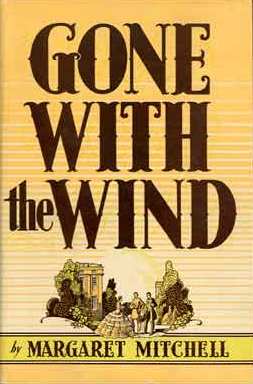
Obvs.
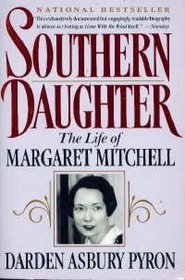
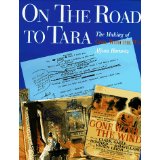
On the Road to Tara, by Aljean Hametz
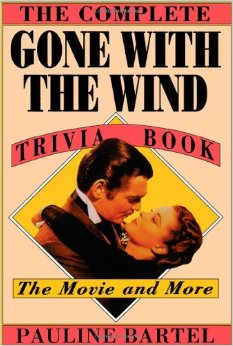
Fun and fast trivia, by Pauline Bartel
A new book, “The Making of Gone With the Wind” by Steve Wilson will be published in September (2014), but here is a peek at some really fabulous images from it.
Almost as much of a classic as the original movie itself. Almost.
http://youtu.be/pjUYw2HKB7o
You want to watch the bunny version. You know you do, it’s okay, we watched it over and over.
http://youtu.be/TsOIn0IBAdA
Beckett’s fabulous GWTW Pinterest board.
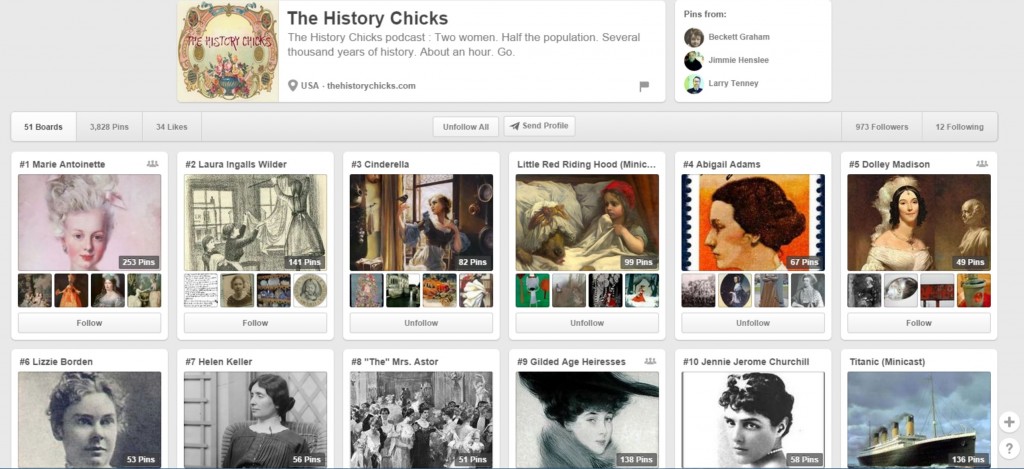
As always, music comes courtesy of Music Alley, visit them at MusicAlley.com


 Hello everyone!
Hello everyone!
















